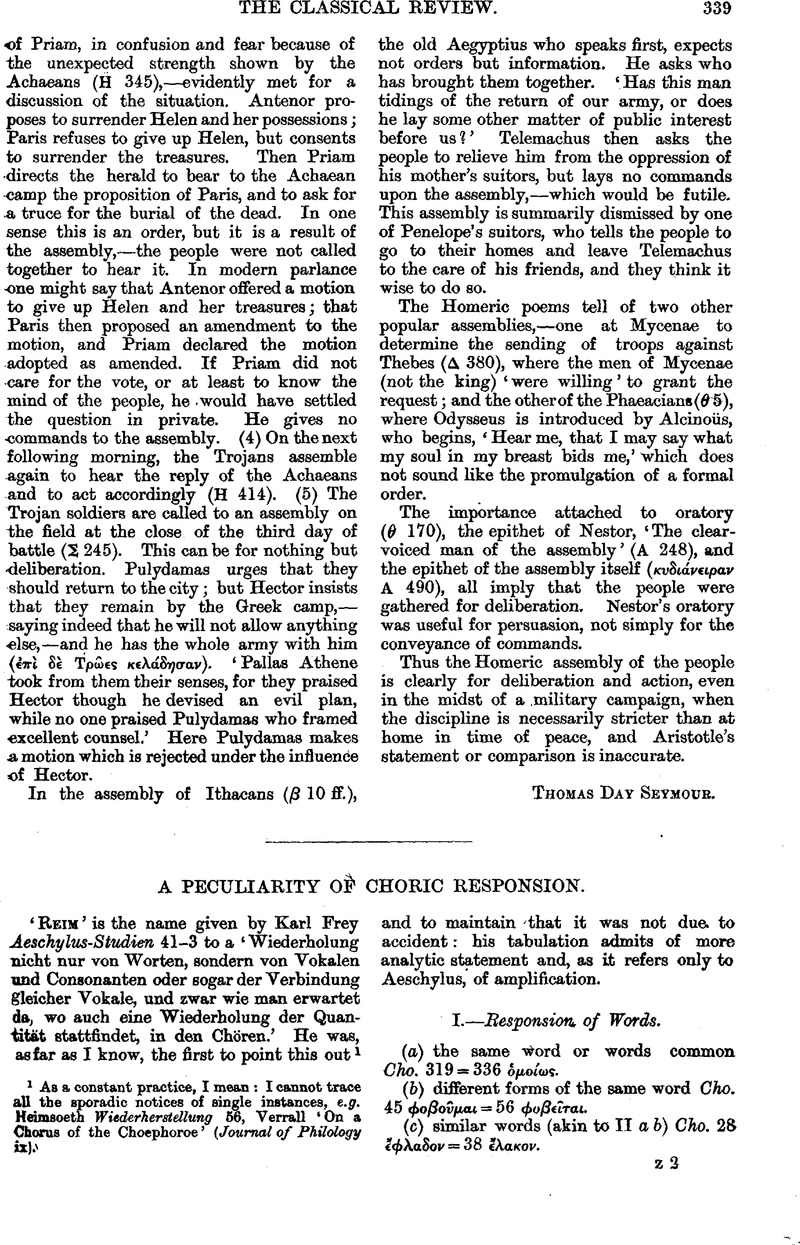No CrossRef data available.
Article contents
A Peculiarity of Choric Responsion
Published online by Cambridge University Press: 27 October 2009
Abstract

- Type
- Original Contributions
- Information
- Copyright
- Copyright © The Classical Association 1906
References
page 339 note 1 As a constant practice, I mean: I cannot trace all the sporadic notices of single instances, e.g. Heimsoeth Wiederherstellung 56, Verrall ‘On a Chorus of the Choephoroe’ (Journal of Philology ix).
page 340 note 1 I insert this proviso for the sake of theoretical completeness: it is at present unnecessary, but no one knows what may not yet be discovered.
page 342 note 1 Irregular responsion is most rare in Aeschylus. I add here one case cited by Frey (p. 42), whether through error or not I cannot tell: Supplices 350 ![]() = 364 Δις κλαρου. Frey calls, special attention to these rhymes ‘durch ein Dutzend Verse von einander getrennt!’
= 364 Δις κλαρου. Frey calls, special attention to these rhymes ‘durch ein Dutzend Verse von einander getrennt!’
page 344 note 1 From here on, as Dr. Murray's edition is not yet finished, I have taken Kirchhoff as a basis, with reference in each case to any other edition consulted. Wecklein I have not had.
page 346 note 1 It is a common requirement in modern French poetry. See, of course, Banville's petit traité and cf. the following passage (L. Muhlfeld, ‘Chronique de la littérature,’ revue blanche, 15 avril, 1893=tom. iv p. 289) ‘‥ il faudrait essayer de surprendre respectueusement la “manière” de Heredia. J'en veux indiquer un seul trait: c'est le caractère supérieurement simple, précis et prépondérant des mots à la rime.
Seul, parfois, un bouvier menant sea buffles boire, De sa conque où soupire un antique refrain Emplissant le ciel calme et l'horizon marin, Sur l'azur infini dresse sa forme noire.
Ces quatres mots boire, refrain, marin, noire résument chacun le vers qu'ils terminent.’ The critic did not go far to pick his example, and I will not trouble about a better.
page 346 note 2 Note the date of this paper.—Aristophanes has his trace of rhyme when he strikes a higher lyric note: Clouds 276–8 ![]() = 298–300
= 298–300 ![]() and 287
and 287 ![]() =309
=309 ![]() .
.


